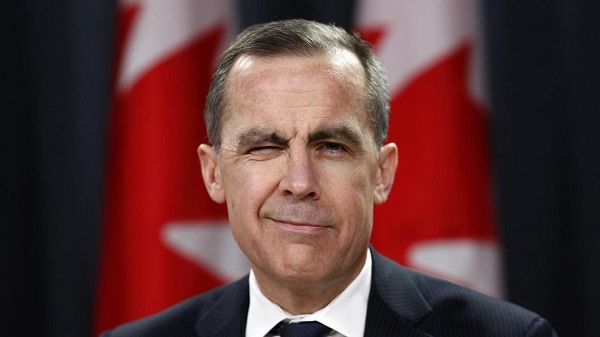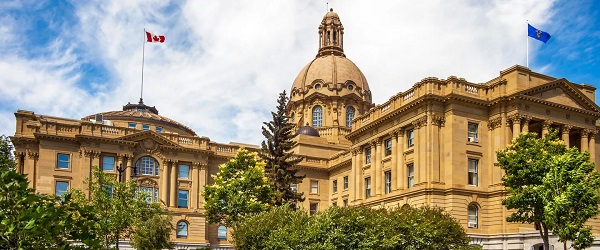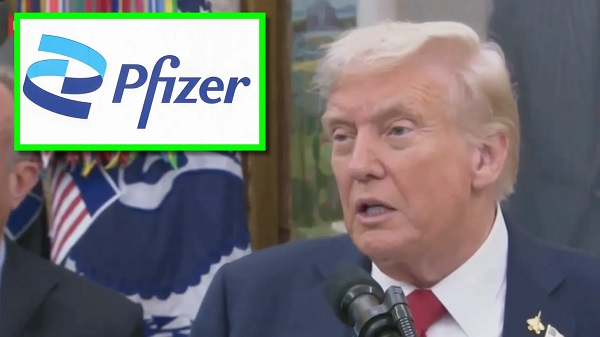Business
Canada’s health-care system is not ‘free’—and we’re not getting good value for our money

From the Fraser Institute
By Nadeem Esmail and Mackenzie Moir
In 2025, many Canadians still talk about our “free” health-care system. But in reality, through taxes, we pay a lot for health care. In fact, according to the latest data, a typical Canadian family will pay $19,060 (or about 24 per cent of their total tax bill) for health care this year.
Given the size of that bill, it’s worth asking—do Canadians get good value for all those tax dollars? Not even close.
First, Canadians endure some of the longest wait times for medical care—including primary care, specialist consultations and non-emergency surgery—among developed countries with universal health care. In fact, the wait in Canada for non-emergency care is now more than seven months from referral to treatment, which is more than three times longer than in 1993 when wait times were first measured nationally.
Why the delays?
Part of the reason is the limited number of medical resources available to Canadians. Compared to our universal health-care peers, Canada had some of the fewest physicians, hospital beds and medical technologies such as MRI machines and CT scanners.
And before you wonder if $19,000 per year isn’t enough money for world-class universal coverage, remember that Canada has one of the most expensive universal health-care systems in the developed world, which means Canadians are among the highest spenders on universal health care yet have some of the worst access to health-care services.
Fortunately, countries such as Switzerland and Australia, which both provide far more timely access to high-quality universal care for similar or even lower cost than Canada, offer lessons for reform. Compared to Canada, both countries allow a larger degree of private-sector involvement and, perhaps more importantly, competition in their universal health-care systems.
In Switzerland, for instance, health insurance coverage is mandatory and provided by independent insurers that compete in a regulated market. Swiss citizens freely choose between insurers (which must accept all applicants) and can even personalize some aspects of their universal insurance policy. Patients also have a choice of hospitals, more than half of which are operated privately and for-profit.
In Australia, citizens can purchase private insurance, which covers the cost of treatment in private hospitals. Higher income Australians are actively encouraged to purchase private health insurance and even have to pay additional taxes if they do not. Some 39 per cent of hospitals in Australia are private and for-profit, providing care to both privately and publicly insured patients.
Vitally, competition between private health-care businesses and entrepreneurs in both countries (and many others including Germany and the Netherlands) has helped create a more cost-effective and accessible universal health-care system. Back here in Canada, the lack of private-sector efficiency, innovation and patient-focus has led to the opposite—namely, long waits and poor access.
Health care in Canada is not free. It comes with a substantial price tag through our tax system. And the size of that bill leaves less money for savings and other things families need.
Getting better value for our health-care tax dollars, and solving the longstanding access problems patients face, requires policy reform with a more contemporary understanding of how to structure a truly world-class universal health-care system. Until that reform happens, Canadians will continue to be stuck with a big bill for lousy access to health care.
Business
PM Carney’s Astounding Conflicts Are Clearly Exposed. What Will Parliament, The Media, And Voters Do About It?

Will opposition parties force an election? Will the media demand Carney account for his conflicts? Will voters continue to allow Carney and Brookfield to profit from Carney’s leadership as they condemn the US President for doing the same?
NEWS ALERT!!!! https://t.co/HrhXGCyfPq
— Andrew Scheer (@AndrewScheer) October 1, 2025
From Conservative Party Communications
Conservative members of the Ethics Committee released the following statement on its ongoing investigation into Prime Minister Mark Carney’s conflicts of interest:
“Yesterday, the Ethics Committee heard scathing testimony from Canada’s leading ethics and accountability experts on the façade that is Mark Carney’s so-called blind trust – and his conflict of interest screen which is nothing more than a smokescreen.
“Leading ethics and conflict of interest experts told MPs that these measures are entirely insufficient, and that Prime Minister Carney stands to make millions from his investments while keeping them largely hidden from Canadians. The breadth of Carney’s conflicts and potential to benefit financially are entirely unprecedented in federal Canadian politics.
“Carney was involved in structuring Brookfield’s Global Transition Funds, from which he is set to receive carried interest payments potentially worth tens of millions of dollars. Carney knows exactly what assets are in these funds, but he has refused to disclose them. If the funds make money, he makes money – and the decisions he makes as Prime Minister will impact their value.
“Democracy Watch founder Duff Conacher testified that the Conflict of Interest Act allows Carney to ‘secretly profit’ from ‘secret investments’ – dismissing blind trusts as ‘not blind at all’ – and confirmed that Carney knows exactly what is in his blind trust. It is only the public that is blind to the full extent of the Prime Minister’s holdings.
“As currently written, the Act allows the Prime Minister to participate in ‘99% of the decisions’ that impact his private investments. Conacher considers the legislation a ‘sad joke’ – noting that ‘any time [Carney] is making a decision that affects businesses in Canada, he is in a financial conflict of interest.’
“As York University’s Dr. Ian Steadman told the Committee, blind trusts simply ‘aren’t enough’ to prevent public office holders from advancing their personal financial interests.
“Witnesses also slammed the Prime Minister’s conflict of interest screen. The screen is enforced by Carney’s top two aides who serve at his pleasure and are not independent. It lacks any transparency or oversight mechanism, which Conacher noted is a violation of the Act.
“The Ethics Commissioner has the power to strengthen the ethics screen and enforce full transparency today. He has failed to do so. This is deeply troubling, and must be addressed.
“These revelations are just the tip of the iceberg in an ongoing investigation. Conservatives will continue to expose Mark Carney’s unprecedented conflicts of interests and fight to close the loopholes in the Act that the Prime Minister is taking advantage of.”
Alberta
Ottawa’s Firearms Buyback Plan: Federal Government Puts Provincial Authority In Its Sights

From the Frontier Centre for Public Policy
It’s about politics and provinces are right to refuse to play along
Federal Public Safety Minister Gary Anandasangaree’s leaked admission that Ottawa’s firearms buyback is unenforceable was no slip. It exposed the way federal power is deployed for partisan gain while provinces are left to pay the bill.
The leak matters because it exposes a pattern, not an exception. Ottawa drafts policies to suit its politics and expects provinces to carry the weight. Police budgets, university research chairs, hospital systems and housing markets are treated as levers to be pulled from Ottawa. The effects are felt locally, but the decisions are made elsewhere.
Consider the pattern. The Online Harms Act, rejected more than once, is introduced yet again, as if repetition can substitute for consent. Health care dollars are tied to federal strings that reorder provincial systems with no regard for local capacity. Immigration quotas climb at a pace provinces cannot house or school. Environmental rules descend without negotiation, upending years of co-operative planning. Each measure arrives as an edict. Consultation is reduced to announcement.
Resistance has already begun. Saskatchewan moved early, adopting legislation that makes any federal confiscation program subject to provincial authority, including RCMP operations. In Alberta, Premier Danielle Smith has gone further, declaring flatly: “We will not allow police in Alberta to confiscate previously legal firearms. I have directed two of my ministers to relentlessly defend Albertans’ right to lawful and safe possession of firearms and the right to self-defence.”
Even before the introduction of the Sovereignty Act, Tyler Shandro, then Alberta’s justice minister, announced that the province would not use its police or prosecutors to carry out confiscations. Although former premier Jason Kenney opposed a Sovereignty Act, his government likewise refused to act as Ottawa’s enforcer.
Alberta and Saskatchewan have since given themselves legislative tools, Sovereignty Acts, which assert the right of provinces to decline enforcement of federal laws they judge unconstitutional. These statutes formalize existing constitutional powers. Provinces without Sovereignty Acts have also drawn lines. Ontario has signalled its refusal to help enforce Ottawa’s firearms program.
These positions are lawful, rooted in the Constitution’s division of powers, which assigns the administration of justice and policing to the provinces.
This clarity ought to attract others. Manitoba, with one of the highest proportions of licensed hunters in the country, has strong reason to resist Ottawa’s targeting of lawful gun owners. Communities are not made safer by seizing deer rifles from responsible hunters, nor are public services improved by diverting scarce provincial resources into a program that federal ministers concede will not work. Manitoba would do well to follow Alberta and Saskatchewan in defending its jurisdiction, whether through a Sovereignty Act or by refusing to play Ottawa’s game.
The point is practical. Prairie provinces cannot spare rural detachments to seize hunters’ rifles because the Liberal caucus fears losing seats in Montreal. They cannot put their power grids at risk to meet Ottawa’s timelines while households absorb higher bills. Universities cannot be turned into federal policy pilot projects. Provinces exist to govern their own communities, not to absorb the fallout of federal experiments.
The genius of federalism lies in the division of authority, which encourages compromise and minimizes tyrannical imposition. Ottawa governs in its sphere, provinces in theirs. Where the two overlap, cooperation must be negotiated, not imposed. Sovereignty Acts sharpen that principle. They remind Ottawa that partnership is earned, not dictated.
What Anandasangaree’s admission exposed was not only the cynicism of one firearms program. It revealed a method of governing: federal power deployed for partisan gain, with provinces reduced to instruments. That cannot endure. Canada was never meant to be a chain of command. It was built as a contract—one that requires respect for provincial authority.
Provinces that refuse to carry out Ottawa’s politically motivated projects are not weakening Canada; they are enforcing its terms.
Marco Navarro-Genie is vice-president of research at the Frontier Centre for Public Policy and co-author, with Barry Cooper, of Canada’s COVID: The Story of a Pandemic Moral Panic (2023).
-

 Alberta2 days ago
Alberta2 days ago$150 a week from the Province to help families with students 12 and under if teachers go on strike next week
-

 National1 day ago
National1 day agoCanada’s birth rate plummets to an all-time low
-

 Business2 days ago
Business2 days agoPfizer Bows to Trump in ‘Historic’ Drug Price-Cutting Deal
-

 Alberta22 hours ago
Alberta22 hours agoAlberta Takes The Lead: With no company willing to spearhead a new pipeline under federal restrictions, Danielle Smith grabs the reins
-

 illegal immigration1 day ago
illegal immigration1 day agoIreland to pay migrant families €10,000 to drop asylum claims, leave country
-

 espionage1 day ago
espionage1 day agoNorth Americans are becoming numb to surveillance.
-

 International1 day ago
International1 day agoNetanyahu hails TikTok takeover as Israel’s new ‘weapon’ in information war
-

 Business24 hours ago
Business24 hours agoElon Musk announces ‘Grokipedia’ project after Tucker Carlson highlights Wikipedia bias






